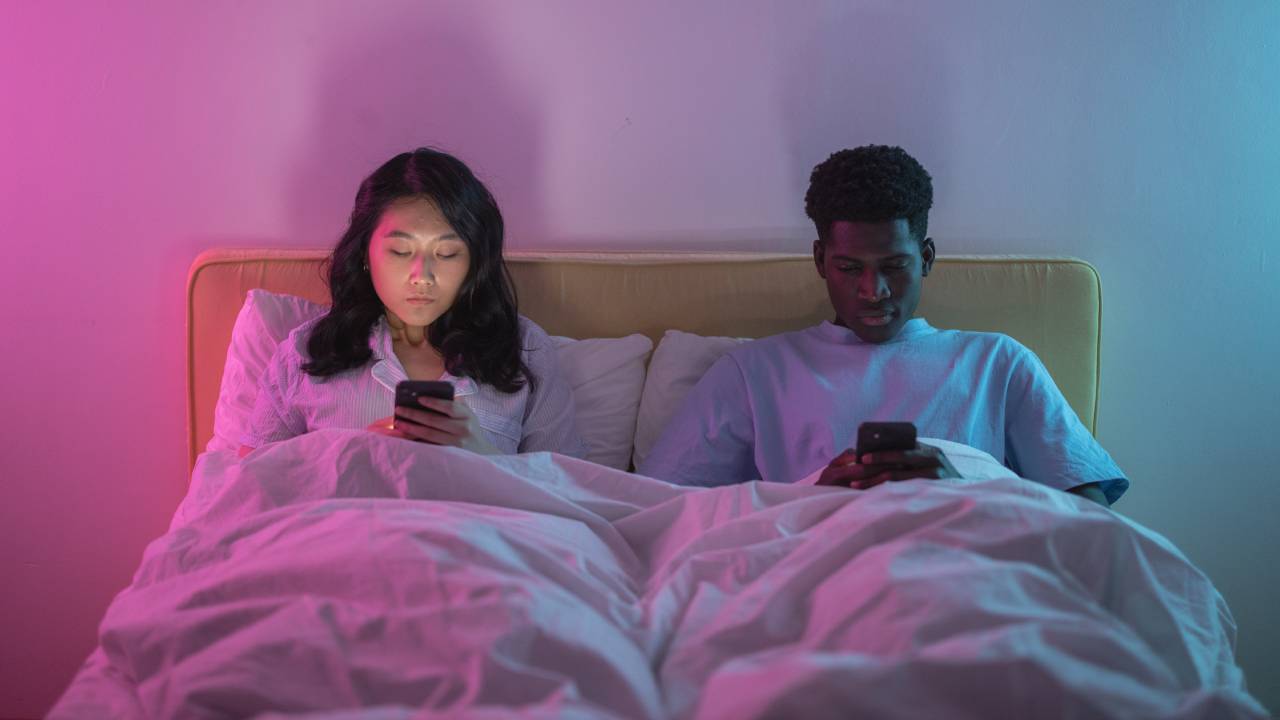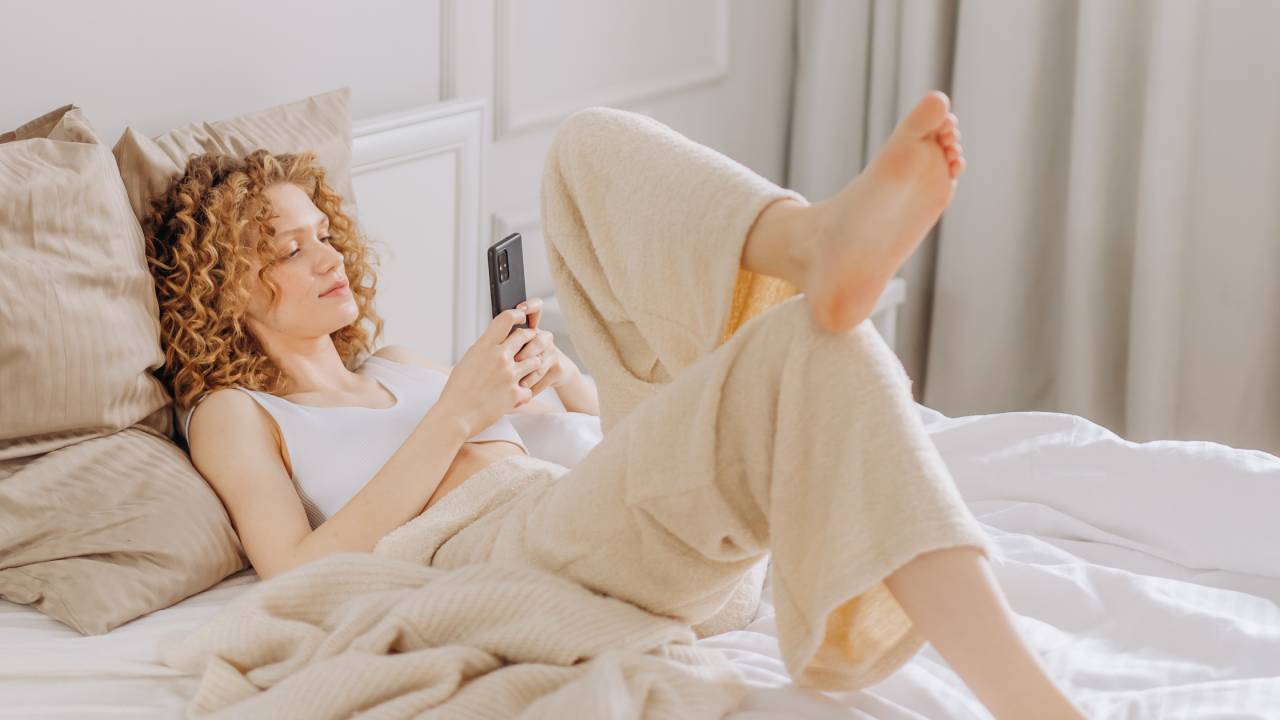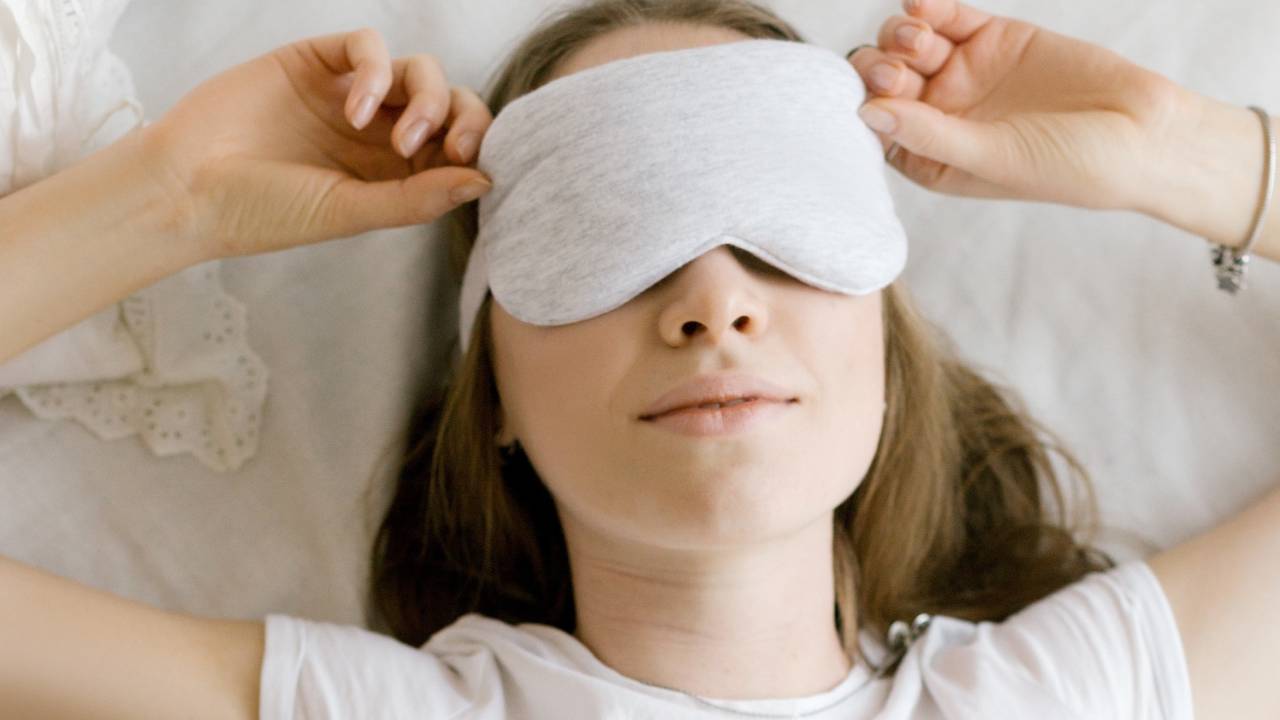Blue light: how it affects sleep & how to block it out at night
How bad is blue light for sleep? We look into what blue light is & how to avoid it


When it comes to getting a good night’s sleep, there are many things you’re told to do and told not to do. For example, you’re often told to invest in the best mattress for better support and comfort throughout the night, create a consistent sleep schedule and put your electronic devices away before getting into bed.
All these tips are a mark of good sleep hygiene but not using your devices before or in bed is very important, as the light from your phone, tablet, computer or TV can massively affect your sleep quality, quantity and duration.
This light is commonly known as blue light and many studies have discovered that this artificial light can interfere with and disrupt your sleep schedule. In this article, we look into what blue light is and how to avoid it for a better night’s sleep.
What is blue light?
Blue light is a colour in the visible light spectrum. It’s a type of high-energy visible light and has a short wavelength, meaning it produces higher amounts of energy. Unlike other forms of light, our eyes can’t effectively filter blue light so it passes easily through the eye to the retina.
Blue light is both natural and artificial, and it’s something we’re exposed to every day. The largest source of natural blue light is from the sun and artificial blue light comes from electronic devices like phones, tablets, laptops, computer monitors, TVs, game consoles and light bulbs.
While blue light is beneficial, especially if you’re exposed to it via the sunlight, it can be disruptive. It’s generally viewed as positive to ‘consume’ blue light during the day as it boosts your mood, attention span and reaction times, but at night, it can interrupt your sleep schedule and results in you staying awake longer and not getting enough or the right quality sleep.

How bad is blue light for sleep?
The main reason blue light is bad for sleep is due to your circadian rhythm. Your circadian rhythm or body clock influences many of your body’s functions, like stress, appetite and sleep. One of its most important tasks is determining when your body should be asleep or awake.
Get all the latest news, reviews, deals and buying guides on gorgeous tech, home and active products from the T3 experts
Blue light can fit nicely into your schedule without disrupting your circadian rhythm if you’re using it correctly. Using blue light during the day when you’re meant to be awake is ideal but if you’re using your phone before bed, this can have a negative effect on your sleep. This is because blue light tricks your brain into thinking it's daytime and it should be awake and alert. Blue light also affects the body’s production of melatonin which is commonly known as the sleep hormone, as it tells your body when it needs rest. What all of this means is that when you’re meant to be resting, blue light will actually make you feel alert and makes it harder for you to switch off.
Similarly, blue light and what you’re looking at on your device can disrupt your sleep. The light stimulates your brain and elevates your body temperature and heart rate, both of which are things that need to be lower in order to help you fall asleep. Overexposure to blue light or if you’re holding your phone too close to your face is also not great for your eyes as it can damage the retina cells and cause vision problems in the future.

In general, blue light can affect your sleep quality, quantity and duration, so avoiding it before bed is a must for you to get a good night’s sleep. Keep reading for our top tips on cutting out blue light for better sleep.
- Wake up more naturally with the best wake up lights
- Beat the winter blues with the best SAD lamps
Tips for avoiding blue light before bed
To avoid blue light before bed, the first tip is to cut out electronics around an hour before you want to go to sleep. Rather than having a last minute scroll or watching a YouTube video, try to make your bed a ‘no phone zone’ so your body can naturally wind down.
If you still want to use your phone or tablet before bed, dim the brightness on your devices or switch to night mode. By minimising the brightness of your phone, it’s less likely to shock your brain into thinking it's daytime and it’s less offensive to your eyes. Similarly, you can wear blue light blocking glasses or use blue light filtering apps that can be downloaded on your phone, tablet or laptop that filter blue light without changing the display resolution or quality.
Fluorescent and LED light bulbs are both sources of blue light so to minimise your exposure, change your light bulbs. We recommend doing this on your main lights and lamps, and if you’re not sure which bulbs to pick, invest in the best smart bulbs to save energy and reduce blue light at the same time. And if you’re looking for a new light for your bedroom, check out our guide to the best bedside lamps.

Beth is Home Editor for T3, looking after style, living and wellness. From the comfiest mattresses to strange things you can cook in an air fryer, Beth covers sleep, smart home, coffee machines, watches, grooming tools, fragrances, gardening and more.
In her spare time, Beth enjoys running, reading, baking and attempting craft projects that will probably end in disaster!